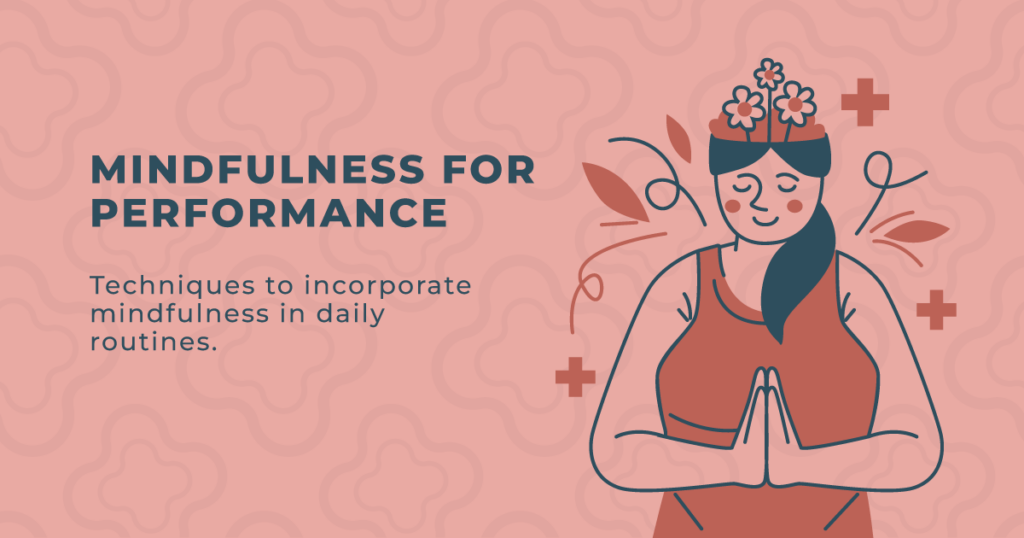Has your week, like mine, been a week of juggling multiple tasks, and feeling the weight of a busy schedule? Now, imagine having the ability to pause, refocus, and regain a sense of calm—all within just a few moments. This is where mindfulness comes into play.
My core work uses Functional Imagery (FIT), however both Mindfulness and FIT offer ways to improve focus, reduce stress, and enhance performance at work. While mindfulness helps you become aware of the present moment and notice your thoughts without judgment, FIT guides you in visualising your goals and tapping into motivation through mental imagery.

A Journey Into Mindfulness
Imagine this: You’re at your desk, surrounded by the usual hum of office life. Your inbox is full, meetings are back-to-back, and yet, you decide to take just one minute for yourself. You close your eyes, take a deep breath, and focus solely on the sensation of the air entering and leaving your lungs. With each breath, your racing thoughts begin to slow down. This is mindfulness in action—simple, accessible, and profoundly effective.
Research shows that practising mindfulness not only reduces stress and improves mental well-being but can also boost performance at work. Leading mindfulness practitioner Jon Kabat-Zinn, founder of Mindfulness-Based Stress Reduction, explains:
“When we commit ourselves to paying attention in an open way, without falling prey to our own likes and dislikes, opinions and prejudices, projections, and expectations, new possibilities open up and we have a chance to free ourselves from the straitjacket of unconsciousness.”
Incorporating Mindfulness at Work; Techniques to Try Today
You might be thinking, “I’m too busy to practise mindfulness.” The good news is that it doesn’t have to be complicated or time-consuming. Here are three simple techniques to incorporate mindfulness into your day:
1. Mindful Breathing: Set aside one minute each hour to focus solely on your breath. Inhale slowly through your nose, feeling the air fill your lungs. Exhale gently, releasing tension with each breath. This simple practice can help reset your mind and enhance concentration.
2. Mindful Transitions: Use moments of transition, such as walking to a meeting or making a cup of tea, as a cue to practise mindfulness. Pay attention to the physical sensations in your body and the environment around you. This helps ground you in the present, providing a mental break and preparing you for what’s next.
3. Gratitude Practice: Before you end your day, take a moment to reflect on one positive experience you had. It could be a successful meeting, a supportive conversation with a colleague, or even a warm cup of coffee. This practice helps shift your focus from stress to positivity, improving your mood and resilience.
Deepening Your Practice
If these techniques resonate with you, I invite you to explore mindfulness more deeply. I work with groups to take them through a comprehensive journey into mindfulness, blending theory, practice, and community support. It’s designed to help you integrate mindfulness into your daily life, not as a tool to fix problems but as a way of living that transforms your experiences at a fundamental level.
Over 8-weeks we explore key elements of mindfulness, guiding you step-by-step and helping you overcome common challenges such as maintaining attention and managing stress. You’ll also join a community of like-minded individuals, sharing experiences and supporting each other in this journey towards a more mindful way of life.
If you would like to register for a group, please get in touch!
Incorporating mindfulness into our working or personal lives isn’t about eliminating stress entirely, but rather about changing our relationship with it. By practising mindfulness, we learn to navigate challenges with greater awareness and patience, ultimately enhancing our performance and well-being.
As mindfulness coach Karen Liebenguth wisely points out:
“Mindfulness has helped me see and understand my helpful and unhelpful habitual ways of thinking and behaving, which in turn has helped me respond differently, more kindly, and compassionately to myself, others, and life’s challenges.”
What will you try this weekend or into the new week?
Roz
+ show Comments
- Hide Comments
add a comment